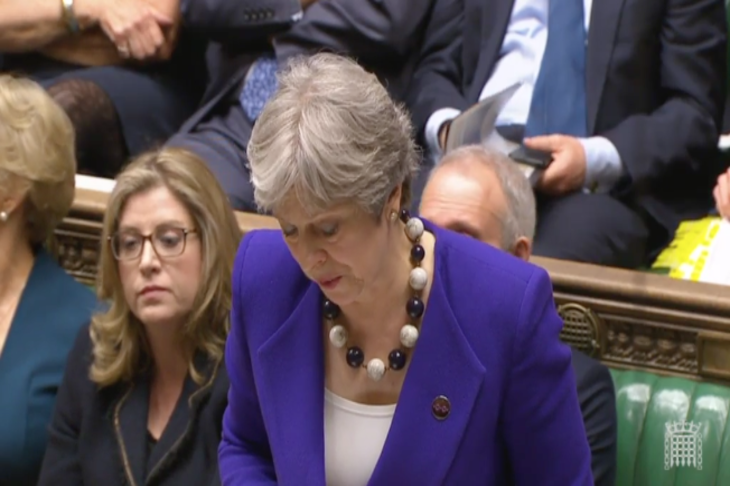The government has got at least two colossal messes to deal with, and yet Theresa May managed to survive today’s Prime Minister’s Questions. This was all the more surprising given the topic of PMQs was on a mess created as a result of one of May’s own policies.
Jeremy Corbyn chose, rightly, to lead on the treatment of the Windrush generation, and had a decent series of questions for the Prime Minister. These ranged from a case he had previously raised of a man called Albert Thompson who had been denied NHS treatment, to highlighting Amber Rudd’s comment about the Home Office being too concerned with policy and strategy to attacking May’s own ‘hostile environment’ policy on immigration. The exchanges between the pair were angry and meaty, but May managed to trip the Labour leader up by pointing out that the decision to destroy the landing cards of those who came to this country in the late 1940s and 1950s had in fact been taken in 2009, under a Labour government. Unwisely, Corbyn then decided to continue with this line of attack, arguing that the Conservatives had still gone ahead with the destruction of the documents. May was also on her home turf, defending her own policy that she believes in, and this meant she was confident under fire.
That said, while Corbyn didn’t manage to make this row any bigger, May hardly succeeded in making it smaller. She had tried to spike Labour’s guns by having a pre-emptive question at the start of the session from Conservative backbencher Neil O’Brien, who asked for an update on the Windrush cases. But her attempts then to minimise the row by claiming, at one point, that the case Corbyn was highlighting was not actually from the Windrush generation backfired: this basically highlights that the problem is far bigger as it covers people from across the Commonwealth.
As ever, the questions that followed Corbyn were rather better: the SNP’s Ian Blackford attacked the government’s controversial ‘rape clause’, whereby women must prove they have been raped in order to secure tax credits for a third child. He highlighted the foolish and insensitive comments made by Work and Pensions Secretary Esther McVey about the experience of disclosing a rape in order to be eligible for the benefits being an ‘opportunity’ for rape survivors to talk. May was very weak in her responses. She argued that the government had been sensitive on this issue, which just didn’t work given what McVey had said.
The government has barely produced any domestic legislation since the snap election, which May announced a year ago today. Yet it finds itself with two big domestic rows to deal with, neither of which it seems to really understand.







Comments